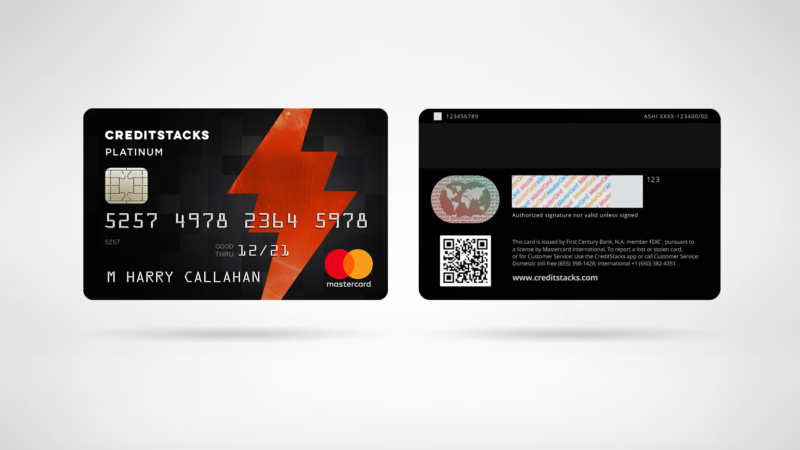 When I first arrived in the United States as a young graduate student, I knew very little about managing my personal finances and nothing about the U.S. credit system. I was attending classes and teaching at the University of California; this was exciting and overwhelming enough for me. I didn’t understand (and didn’t really want to bother to learn) why seemingly straightforward tasks like renting an apartment, buying a car, and getting a credit card seemed so complicated and difficult in this new country. I didn’t know what credit history was, or why it mattered that I didn’t have one.
When I first arrived in the United States as a young graduate student, I knew very little about managing my personal finances and nothing about the U.S. credit system. I was attending classes and teaching at the University of California; this was exciting and overwhelming enough for me. I didn’t understand (and didn’t really want to bother to learn) why seemingly straightforward tasks like renting an apartment, buying a car, and getting a credit card seemed so complicated and difficult in this new country. I didn’t know what credit history was, or why it mattered that I didn’t have one.
When I decided to relocate to the U.S. permanently, I made many professional and cultural adjustments, including learning how to order coffee in Seattle like a pro. (I read a book about it.) But I never did find an expat’s guide to personal financial management or credit in the U.S. So, when it came to my credit, I just kept muddling along. It took me years to graduate from a secured credit card to a real, premium credit card with all the perks, and even longer to finally (!) build a credit score that makes landlords and mortgage lenders perk up whenever they see me coming.
Why your credit score matters in the U.S.
If you’re new to the U.S., you have your hands full adjusting to your new life. It’s temptingly easy to do what I did, and ignore your credit. But that would be a mistake, and here’s why.
In the U.S., your credit score is a measure of your financial credibility and general trustworthiness. It’s a quick snapshot that tells people and companies whether it would be smart to do business with you. A good credit score is the key to smooth business deals and huge savings over time. For example, it opens the door to easily renting an apartment, buying a car, or opening a mobile phone account. A poor or nonexistent credit history, on the other hand, makes it harder to take these basic steps to settling into your new life in the U.S. Your credit score can mean the difference between a 0% loan and a 24% loan on your next car – for most of us, that’s a big enough difference to notice!
So, what you really need to do if you’re new to the U.S. is build a great credit score as quickly as possible. But here’s the catch. As a newcomer to the U.S., you start from zero, credit-wise. No matter how strong your school, work, or financial history was in your home country, when you move to the U.S., none of that travels with you. How are you supposed to build good credit if lack of credit disqualifies you from getting a credit card in the first place?
Not all paths to good credit are the same: How to do it right
The fact is, the U.S. credit industry has a “chicken or egg” problem. In trying to navigate it, most expats have historically taken one of several approaches: one ineffective, and the other, slow and inefficient.
Approach #1 – Ineffective: Take no proactive steps and hope for the best. Like me, you can cross your fingers and hope that if you just pay your rent and utility bills on time, the credit gods will eventually smile upon you. Unfortunately, unlike credit card and loan payments, rent and utility payments are not routinely reported to credit bureaus. So, you don’t get “good credit” for making these payments on time. On the other hand, if you are ever late with your rent or utility bills, and the company you owe sends the bill to a debt collector, it may end up hurting your credit.
Approach #2 – Okay, but slow and inefficient: Use lines of credit such as credit-builder loans or secured credit cards to demonstrate your creditworthiness. A credit-builder loan is like a forced savings plan, or a loan in reverse: you make regular payments to a bank before you receive the loan amount. The lender releases the loan amount to you, minus interest, after you have paid off the loan. A secured credit card requires a cash deposit to guarantee that you will not default on your bills. Either of these can help you build credit as long as you make payments on time. Whenever you make payments against a credit-builder loan or a secured credit card, your payments are reported to the credit bureaus, potentially boosting your credit score.
If you think the above two approaches just aren’t good enough, I agree. Fortunately, there is now a third approach that offers a direct, effective, painless (and frankly, less demeaning) path to a great credit score.

Approach #3: – Get a credit card of your own and start building your credit – from day one. I recently joined a company called CreditStacks, whose founders experienced the U.S. credit industry’s chicken-or-egg problem first-hand, just like I did, when they arrived in the U.S. Despite being high-tech professionals, Elnor Rozenrot, Jonathan Jacobi and Shahar Nechmad were denied credit cards by the U.S. credit system. Unlike me, however, they were in a position to do something about it. So, they set out to solve the U.S. credit system’s chicken or egg problem for other successful expats like themselves. Joined by Robert Hartheimer, a U.S. banker with over 30 years of experience in the field, they founded CreditStacks – a different kind of credit card company that finally says “yes” to expats.
Today, thanks to CreditStacks, expats in the U.S. can build good credit from scratch – faster, and painlessly. Unlike other U.S. credit card companies that refuse to issue a card to expats with no credit history, CreditStacks is a game-changer because it looks at new-to-credit applicants and sees not just a credit score, but potential. Approved customers receive a no-compromise, premium credit card with a high monthly credit limit, no annual fees, low-interest rates, with no SSN or credit history needed to apply.* Applicants can submit applications up to 60 days before they move to the U.S., then find their new CreditStacks Mastercard waiting for them on their desks the day they land.
When I first heard about CreditStacks, my immediate reaction was, “Why did it take so long for someone to come up with this?” A CreditStacks Mastercard would have made my transition to the U.S. much easier and, I’m quite certain, would have saved me a small fortune over the years as well. As a part of CreditStacks’ marketing team, I am proud to be helping to share the CreditStacks story with other U.S. immigrant professionals like myself.
Anyone relocating to the U.S. has a lot on their plate. With a CreditStacks Mastercard, expats are empowered to fully enjoy their new life in the U.S. from day one. They start building good credit immediately, with every transaction. And, through the CreditStacks app and emails, they receive guidance to keep strengthening their credit over time, continuing to build a stronger financial future as they navigate their new lives in the U.S.
Written by Cara Reynolds, Content Manager, CreditStacks.com. Cara was born in the Philippines, has lived in Hong Kong, and attended graduate school in California before traveling all over the U.S. and finally settling in Chattanooga, Tennessee.
@creditstacks
www.creditstacks.com
*SSN will need to be provided within 60 days after your CreditStacks Mastercard is activated.
Review the CreditStacks cardholder agreement and fee schedule.

